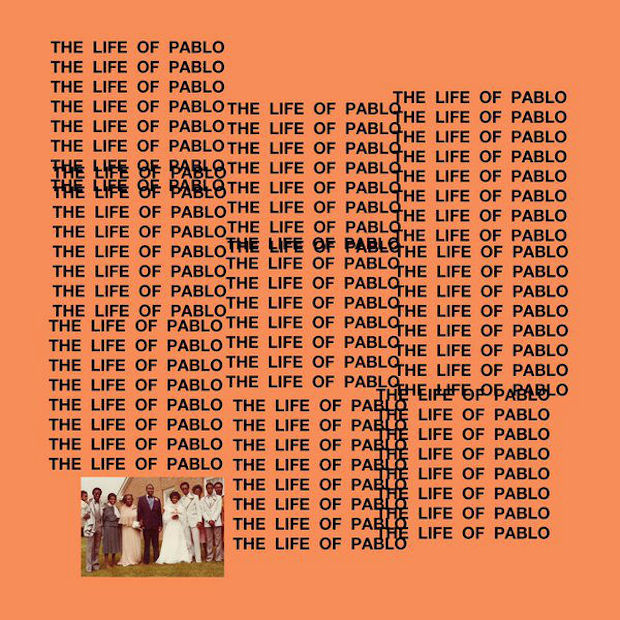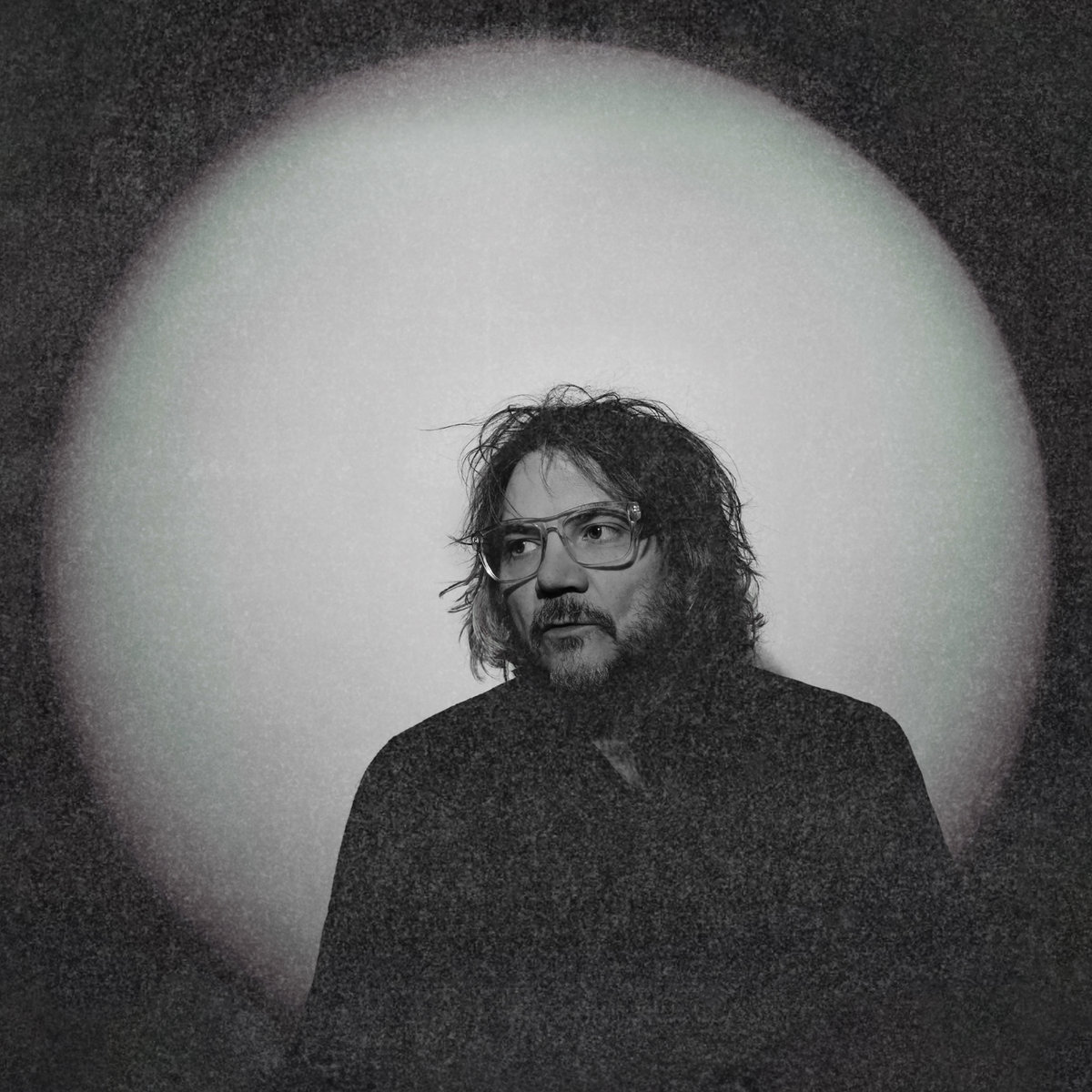"Name one genius that ain't crazy." That's Kanye West on "Feedback," delivering the single most quotable line of his new album The Life Of Pablo and maybe the clearest defense of his decade-plus legacy of bullshit. Just in the past few weeks, West has pulled some deeply concerning nonsense: The Cosby tweet, the Taylor Swift line, the publicly badgering Mark Zuckerberg for a billion dollars. And perhaps more intriguingly, he's existed in a state of absolute chaos lately, working on Pablo up until the very moment of its release and then even after. For most artists, we'd be treating all this the way we treat B.o.B.'s flat-earth conspiracy theorizing: As evidence that he's completely lost it, that he's floating off in some rarified coked-out delusional-celeb space, that we'd never have to take him seriously again. But before this weekend, West had released six truly great solo albums. And he's going to keep our attention. Right now, he's seven for seven.
In a weird way, The Life Of Pablo is a landmark within West's discography because it's the first album that isn't really a landmark. More than maybe any other working artist, West is deeply conscious of the album as a holistic statement, a closed system, and every new album marks some new stage of his development. But Pablo has elements of all his other albums: The underestimated-striver exuberance of The College Dropout, the expansive reach of Late Registration, the nonstop-bangers immediacy of Graduation, the wintry and desolate Auto-Tune blues of 808s & Heartbreak, the regally monomaniacal self-obsession of My Beautiful Dark Twisted Fantasy, and the trollingly discordant transgressiveness of Yeezus. And it has something else, too. It has gospel.
Again and again, West has referred to Pablo as a gospel album. But West doesn't use gospel the way other artists do. For years, rock bands have used gospel choirs as a source of organically gritty joy. West doesn't use it like that. He also doesn't use it to appeal to tradition and nostalgia, the way some R&B singers do. Chance The Rapper, West's guest on "Ultralight Beam," uses gospel to help him express familial warmth and love, and West doesn't really do that, either. The closest gospel-influenced parallel I can think of is Spiritualized's Jason Pierce on Ladies And Gentlemen We Are Floating In Space: The despondent and heartbroken junkie, knowing his life is a wreck but longing for transcendence. As far as drugs go, West raps more about the antidepressant Lexapro than anything else, and his family life, at least from outside, seems pretty happy. But that tension between heavenly urges and base ones is key to Pablo. People are laughing about the way West starts crooning about fucking models and anal bleaching just seconds after gospel figurehead Kirk Franklin has finished sermonizing. But this is a deeply intentional choice. West knows what he's doing; he, of all people, hasn't forgotten about Franklin's porn addiction.
But did West grow up with gospel music? The question was eating at me all day yesterday. West grew up Catholic, not Baptist or Pentecostal. For all I know, the Catholic churches on Chicago's South Side have great choirs. But at least in my experience, Catholicism is not about transcendence through music. It's about other things. And The Life Of Pablo is as clear a conflicted-Catholic album as, say, Madonna's Like A Prayer or the Hold Steady's Separation Sunday. In pop music, Catholicism has been about the combined power of vice and guilt, the sense that you're constantly letting down your family and your god even as you give into the urges you can't control. That's Kanye. West named the album after Saint Paul, the persecutor of early Christians who went through a sudden conversion and became the Church's greatest early messenger. But from where I'm sitting, the saint that West might identify with the most is Augustine, a man so driven by leftover guilt from his younger years that he founded an entire order of monks. West is driven by the idea of redemption;I'm pretty sure that's why he brought in Chris Brown to sing on "Waves." And when West sings, "Deliver us serenity, deliver us peace" in the album's opening seconds, it's not that far removed from Augustine's prayer to "grant me chastity and continence, but not yet."
Through most of Pablo, West works like a man who knows that serenity and peace are nowhere near, who's sadly resigned to it. When he talks about his family, he sounds fiercely devoted, especially on the feverish and desperate would-be album closer "Wolves." More often, though, he's sneering at the world around him, at everyone who wants something from him. At moments, the album is the bitterest thing West has ever recorded. His already-infamous "30 Hours" ex-bashing line -- "My ex said she gave me the best years of her life / I saw a recent picture of her, I guess she was right" -- might even be more vicious than anything on 808s & Heartbreak. Some of this stuff is just about impossible to get past. The Taylor Swift line on "Famous" is maybe my least favorite lyric of Kanye West's entire career, a career full of dubious lyrics. It's so pointlessly gross and heedless and attention-grabbing -- all the mutual respect that he and this fellow pop giant have built up over the years sacrificed so he can get that quick-hit oooh reaction on a single line. And yet this song has only been in my life for a weekend, and I've already caught myself rapping along with it.
That's the problem with genius, isn't it? When I reviewed 808s & Heartbreak in 2008, I was struck by two things: The icily brilliant audacity of the music and the pettiness of the lyrics -- West spending an entire album roasting his non-famous ex-fiancee and knowing that she'd have no way to publicly defend herself. These days, I still put on 808s all the time, and I don't think about Kanye's ex anymore. And that Taylor line comes on a fucking monster of a banger. Everything Kanye juggles on "Famous" -- the soul-grabbing Nina Simone sample, the euphoric Rihanna vocal, the blood-firing Swizz Beatz exhortations, the ribcage-rattling drums, the organ bursts, the transporting chop of Sister Nancy's reggae classic "Bam Bam" -- amounts to a swell of feeling, a piece of music so overwhelmingly powerful that I couldn't hate it if I tried.
Other moments on Pablo are just as masterful: The Weeknd's heart-stopping and vulnerable cameo on "FML," the perfect Trax Records thump of "Fade," the way the ghostly "Real Friends" loop fades into the beyond-the-wall isolation of the "Wolves" intro. Just as he did on his last two albums, West built this album by committee, inviting help from anyone who caught his ear and somehow figuring out just how these people should fit into the fabric of the album. So beats from dusty-fingered Stones Throw fixtures Madlib and Kariem Riggins sit next to a track from old-school house revivalists DJDS, and an overjoyed Chance The Rapper erupts onto "Ultralight Beam" with maybe the single best verse of his entire career. West has been pulling off unlikely feats like this for decades; when he invited Young Thug and soul/gospel great Kelly Price onto the SNL stage to help him perform "Highlights" this past weekend, it was merely an advanced version of the moment he got Mos Def and Freeway to rap on the same song 12 years ago. Presumably because of the absurd circumstances of its creation, Pablo is a jumbled, all-over-the-place collection that never quite hangs together as a cohesive album (though the form of the album he debuted at Madison Square Garden on Friday feels more like a whole than what he released a day and a half later). But it's full of moments that just snatch my breath away, and that's enough to qualify it for great-album status.
It's a mess, too, of course. How could it not be? West simply would not stop tinkering with the album. When he played "Highlights" at Madison Square Garden, people laughed over the line about Rob Kardashian and Blac Chyna, since they'd only been dating for a couple of weeks. Then, when West posted the album on Tidal two days later, there were lines on the new "30 Hours" intro about the MSG listening party, the one that had happened barely 24 hours earlier. Then, later in the day, he stopped selling the album, vowed that he would "fix" "Wolves" (a song that absolutely doesn't need fixing), and told everyone that it would be on sale again in a week. For all we know, the version of the album that comes out in a week will be radically different from the one streaming on Tidal right now.
Thanks to that messiness, we get plenty of regrettable decisions on the album. We get all the embarrassing appearances of Desiigner, the fake-Future rapper, whose inclusion reminds me of the Drake impersonator that Erykah Badu used on her last mixtape. We get "FACTS," the Adidas ad and Drake/Future bite that West should've left as a SoundCloud curio. (I'm thinking West is worried about Future. He definitely gets a lot of use out of Metro Boomin, Future's favorite producer.) We get the phone call from incarcerated cult hero Max B, which seems to exist just to spite Wiz Khalifa. We get short, maybe-unfinished song-sketches. All those blunders take away from Pablo, but they add something to it, too. There's something truly exciting about watching a great artist throwing this thing together at the last minute, like a college student pulling an all-nighter before handing in a final paper, and coming up with more great moments than anyone could've guessed. That's Kanye West: airing out his insecurities and delusions in public, halfassing on the grandest stage imaginable, and still making an album better than what almost anyone else could've managed. Name one genius that ain't crazy.
The Life Of Pablo is out now, sort of, on Tidal.
[videoembed size="full_width" alignment="center"][/videoembed]
[videoembed size="full_width" alignment="center"][/videoembed]






